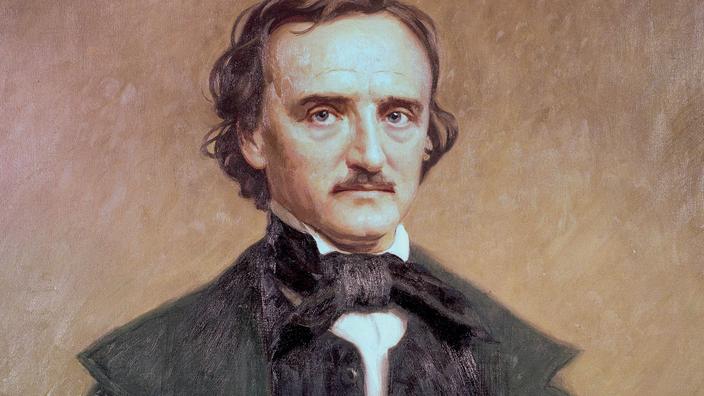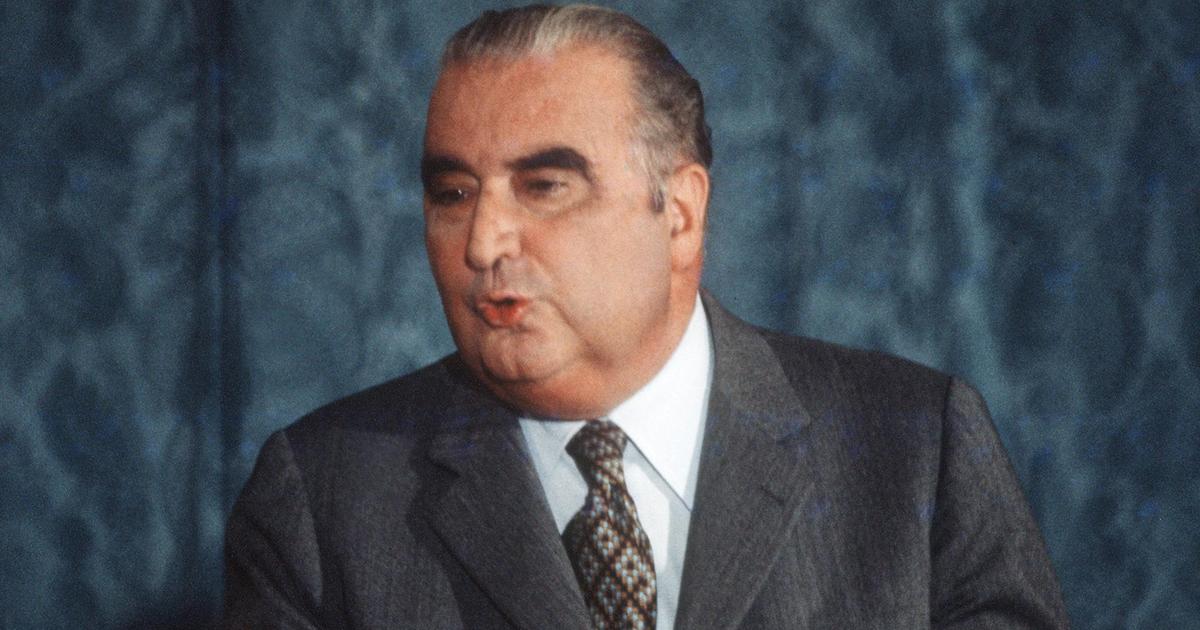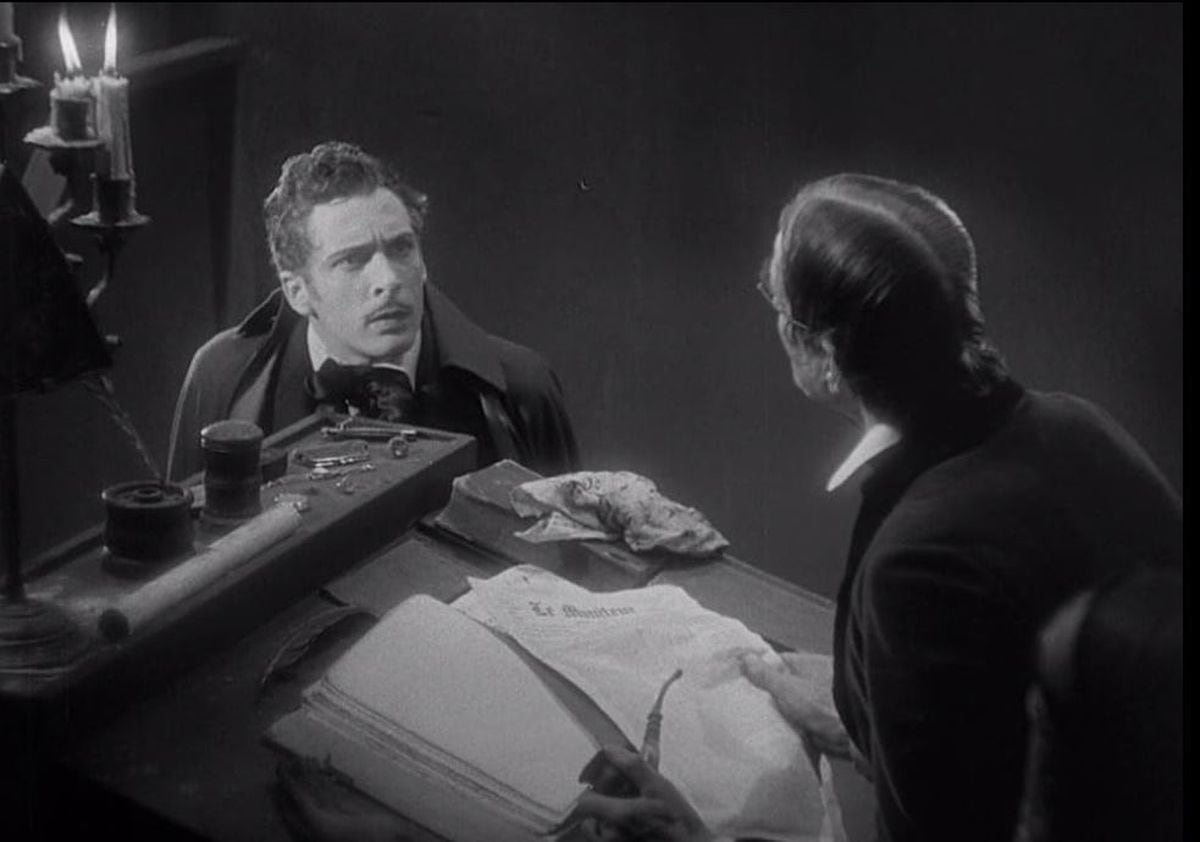He had discovered Edgar Poe in 1847 and recognized in him his "
similar, [his] brother
".
On October 15, 1851, he asked a bookseller to order all of the American author's works in London.
He contemplates himself there as in a mirror.
Just as America, "
this mob of sellers and buyers
", has been a prison for Poe, so in Paris Charles often runs up against walls of incomprehension.
They have experienced the same literary setbacks, the same financial difficulties and suffered from these crises of sterility which often paralyze writers whose nerves are on edge.
Their brotherhood is that of the "
guignon
".
Read also Baudelaire, the spleen of modernity: fatherless at 5, Charles under the rule of General Aupick
Charles is determined to make Poe's work known in France.
The translation of
Magnetic Revelation
will appear in
The Freedom to Think
.
Four other texts are published by journals.
The editor of one of them, Victor Lecou, suggested that Baudelaire publish his translations in one volume.
The latter gets down to work but the documentation, which one of his former landladies keeps with her until he has paid his debt, he lacks.
He ended up returning a shapeless copy to Lecou, who relied on this publication to straighten out his lame bookkeeping.
Soon, the publisher had no other choice but to sell his magazine to Louis Hachette.
To read also Michel De Jaeghere: "Baudelaire, the alchemist of the pain"
Baudelaire comes to offer his translations to his son-in-law. Emile-François Templier, very quickly annoyed then exasperated by the multitude of finesse Baudelaire flaunts, will put him at the door of his office. To renouncer ? Charles talks about Edgar Poe in all the cafes he frequents. He wants to make him known to Parisian bohemia.
For his translations, Charles tirelessly harasses Anglicists, British professors and visiting Americans. He went so far as to question an English tavern keeper, established in the rue de Rivoli, in order to understand proverbial expressions and certain slang terms. After several failures with possible publishers, he ended on August 3, 1855 by signing a contract with Michel Lévy for two volumes:
the Extraordinary Histories and the Extraordinary New Histories
. The first publication will come out in 1856; the second, the following year, as well as The Relation of Arthur Gordon Pym of Nantucket.
Charles is not satisfied with making his "
brother
" known. He will embark on new journalistic adventures that will remain short-lived, but also try to satisfy his passion for the theater. Ten years after the failure of
Idéolus
and several other projects, including an opera, he recites
Le Vin de l'Assassin
at a dinner
. Hippolyte Tisserant, renowned actor of the Odeon, pricks up his ears and comes to suggest to him to transform his poem into drama. Charles is enthusiastic. But he will spend more time at the theater than at his writing desk. He wants to change the scenery, do away with the division of the play into acts, palaver, nit-picking and has written almost nothing when Tisserant has to go on tour.
His sentimental life is just as muddled. He broke with Jeanne, his torment. Since 1852, he has frequented the “
literary center
” of Apollonie Sabatier, who was an extra at the Opera before becoming a model very appreciated by painters. Not only because of the beauty of her body, but also for her good humor and quick wit. She became the mistress of a rich industrialist of Belgian origin, who installed her in rue Frochot. She gets into the habit of inviting a dozen friends there on Sundays. Baudelaire joined this “
intellectual bacchanal
”, to use the expression of Théophile Gautier, who is used to it.
Everyone is more or less in love with Apollonia. Charles decides to become one too. For a year and a half, like a teenager, he will send several anonymous letters to "
a too gay woman
", attaching a few poems to his missives before ceasing this epistolary marivaudage. In the meantime, he became the lover of Marie Daubrun, a capricious and fickle stage actress. Marie will inspire him with a few pieces from
Les Fleurs du mal,
including
The Invitation to Travel
. She was Théodore de Banville's mistress. It will be that way again. Going from one to the other, Marie will cool their friendship without succeeding in breaking it.
Charles himself constantly oscillates between his theatrical inclinations, journalism, translations, his most profitable activity, and art criticism.
When he is tired of existing, he writes to his mother to tell her about his misery or he immerses himself in Joseph de Maistre and repeats after him that "
redemption is out of reach
".
Cover of the Figaro Hors-Série Baudelaire, the spleen of modernity Étienne Carjat, 1861
On Figaro Store,
Le Figaro Hors-Série
Baudelaire, the spleen of modernity, € 12.90








